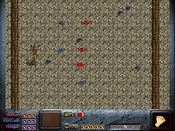void?
I'm wondering if anyone knows whether or not the "void"s that appear between the parentheses here are necessary or if the script works just as well without them:
void main( void )
{
...
}
Thank ye in advance for your answers.
void main( void )
{
...
}
Thank ye in advance for your answers.
I haven't used void for a long while and no complications thus far. Sometimes scripts even work without
void main()
{
}
void main()
{
}
It is not required... but I like it anyway. Heck, I think this even works correctly:
void main (
{
...
}
void main (
{
...
}
No... I'm fairly positive that the engine looks for the first void to figure out where procedures start.
I think a normal C program requires
void main(void)
while a C++ program works with
void main()
void main(void)
while a C++ program works with
void main()
'void' is what it means: an emptyness. so void would give the same result as nothing at all.
void means the return-value of the procedure/function/method (the name changes every decade or so  ) is void though if the DinkC engine uses it to determine where procedures start in a DinkC script, it would be better to place them there anyway even if they don't serve any purpose for the functioning of the script.
) is void though if the DinkC engine uses it to determine where procedures start in a DinkC script, it would be better to place them there anyway even if they don't serve any purpose for the functioning of the script.
























